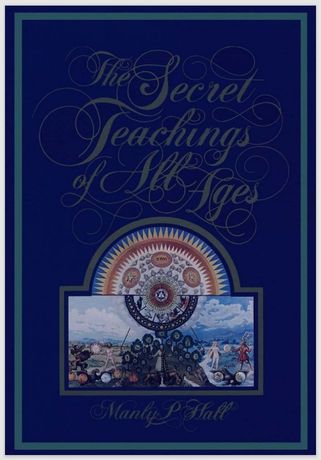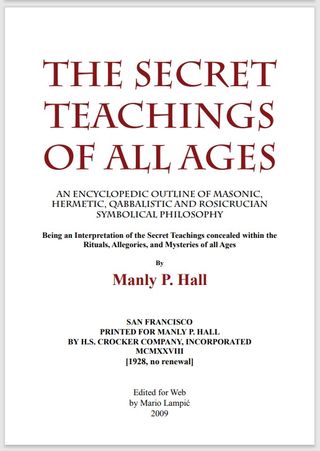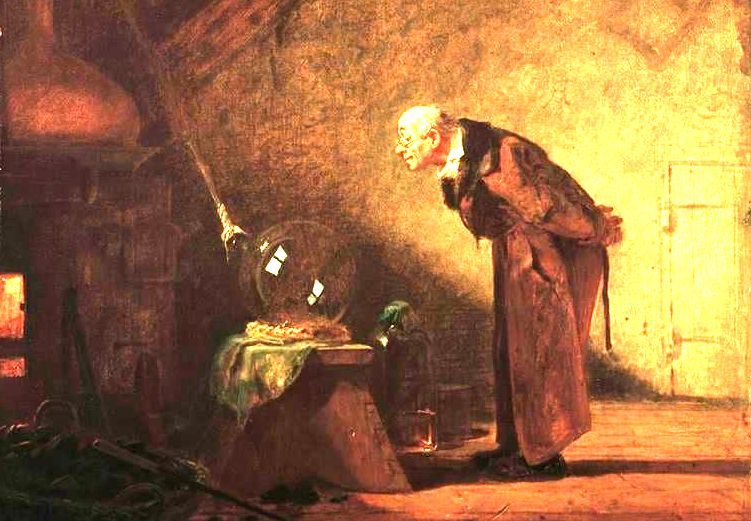First of all it's not a single art but a collection of different arts that have at least one important feature in common: They all exceed the range of the so called"SEPTEM ARTES LIBERALES", the seven free arts, that were officially allowed by the roman church. In other words: They include knowledge or practices that were officially forbidden (for normal people) by the church.
But keep in mind: The holy roman church herself knows all of theese forbidden arts & books. The Vatican Library still has a large collection of books that are forbidden for common people but acessible for clerics with special permissions. One of the official practical reasons is: You can't censor something without knowing it.
But the most important reason was: During the Middle Ages the church claimed a monopoly on every section of knowledge that was strategical important. In this period of time the centralized roman church had the function of a central secret service for large parts of europe.
It all started in antiquity: Philosophers, scientists and engeneers created different systems to encrypt knowledge. The major reason for this strategy was to hide important knowledge from the people and from the authorities. Hiding knowledge from the people was necessary to save information from being abused by potential enemies. Hiding it from the officials was necessary to avoid being censored.
This of course became particular important in the middle ages, when the roman church established the "Holy Inquisition". The Inquisition hunted and judged lots of scientists likeGiordano Bruno and religious reformers like Jan Hus for practicing"Heresy". When they found them guilty, theyburned them at the stake - often just for publishing things that are common knowledge today.
Most of the arcane knowledge that was hidden in the occult philosopy was not very mysterious or very dangerous from a modern point of view: It was knowledge of pagan ancient cultures like Egypt, Greece and Rome aswell as knowledge from the the islamic cultures of the middle ages.
Both pagan and islamic knowledge was forbidden by the roman church, which dominated western, central and southern europe through the whole Middle Ages and the Renaissance Age. The orthodox churches of east europe were less restrictive. So theByzantine Empirebecame an early center of Arcane Arts.
With encrypting in mysterious symbols and language the scholars of arcane arts saved lots of old knowledge from being burned by totalitarian leaders of the past. The systems of encryption they used were mainly based on ancient and early medieval philosophy, mythology and art. A major role in this collection played the culture of Gnosticism in late antiquity and the early middle ages, because gnostic philosophy also was an important source of christianity. Therefore it was compatible to the Septem Artes Liberales.
Many early Scientists of theRenaissance Age and of theScientific Revolution were highly interested in Secret Arts likeAlchemy andHermeticism. The most famous of theese Scientists probably wasSir Isaac Newtonhimself. The Father of Modern Physics was a well knownHobby-Alchemist which he (in his active years) still had to hide before the officials of Cambridge University because it could have ended his carreer....
The Secret Teachings of all Ages
The best known and most ComprehensiveEncyclopedia of the Arcane Arts in Public Domain actually is
The Secret Teachings of all Ages (1928)
Goodreads Article (English)
literaturzeitschrift.de (German), Freemason-Wiki (German)
By Manly Palmer Hall
M. P. Hall was an international respected TeacherIn Philosophy, Religious Studiesand Freemasonry:
Wikipedia English, Wikipedia German
Longer Article in Freemason-Wiki (German)
Now in Public Domain
And Available for Free in Different Versions at Internet Archive.This ist the Best and Most Artificial Free Version I could find:


>>>> The Secret Teachings o. a. Ages (1928), PDF & EPUB, Free at I.A. <<<<
Frances Amalia Yates
The British HistorianFrances Amalia Yates (1899 - 1981)worked at theWarburg Institute
in association with theUniversity of London.
She was a Leading Expert for Renaissance History, Arts and Occult Philosophy,
which made her books a secret tip for everyone who is interested in
Secret Arts like Alchemy and Hermetic Philosophy.
Most interesting works in this section are:
"Giordano Bruno and the Hermetic Tradition" (1964), "The Rosicrucian Enlightenment" (1972) and "The Occult Philosophy In the Elizabethan Age" (1979).
Found some free online libraries where you can
download them as eBooks (PDF) for free:
Giordano Bruno and the Hermetic Tradition (1964), O.S. at VDOC.PUB
The Art of Memory (1966), Open Source at selfhelpbooks.io
The Rosicrucian Enlightenment (1972), Open Source at OceanoPDF
(Ignore the ads & scroll to the links for PDF or EPUB)
The Occult Philosophy In The Elizabethan Age (1979), Open Source at I.A.
Published 1979 and republished 2001 in the Routhledge Classics Series
The Warburg Institute
TheWarburg Institutefor Advanced Studies in Cultural HistoryIs part of theUniversity of London
Warburg Institute on Twitter
Library of the Warburg Institute (Catalogue)
Warburg Library on Twitter
